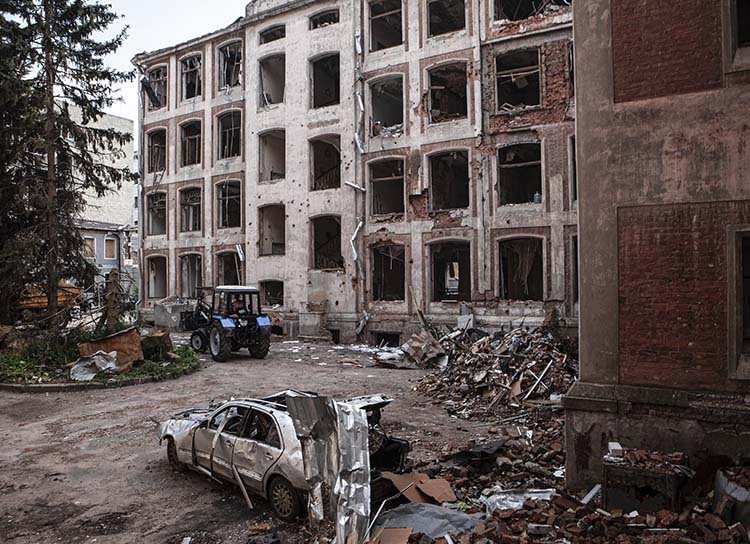
A new academic fellowship program funded by UC Berkeley’s Haas School of Business and the Department of Economics will help Ukrainian scholars persevere with their work through the hardships of the war.
Scholars located in Ukraine and affiliated with a university, college, or research institute can apply for $5,000 grants to continue with their research and teaching. The $140,000 fund, granted equally by Berkeley Haas and Berkeley Economics, will help sustain up to 28 Ukrainian academics.
“This is going to be a tough year for many Ukrainian scholars in terms of security, housing, and budgets. Many have lost their homes, offices, labs, and classrooms,” said Yuriy Gorodnichenko, the Quantedge Presidential Professor of Economics and a member of the fellowship committee. “This fellowship not only gives people the means to survive and to have some time to do research, but also serves as an important sign of solidarity against Russian aggression.”
“The barbarism of Russia’s war aims to destroy Ukraine’s people, institutions, and civil society,” added Anastassia Fedyk, an assistant professor of finance at Berkeley Haas, who is also on the fund committee. “Bolstering Ukraine’s education system at this critical time will help increase Ukraine’s resilience.”
“The barbarism of Russia’s war aims to destroy Ukraine’s people, institutions, and civil society. Bolstering Ukraine’s education system at this critical time will help increase Ukraine’s resilience.” —Assistant Professor Anastassia Fedyk
Since Russia’s invasion of the country last February, Fedyk, Gorodnichenko, and other economists with close ties to the region have been using their expertise support Ukraine—giving media interviews, writing op-eds, raising funds, and joining with others in the U.S. and globally to form the group Economists for Ukraine. The group has now partnered with Universities for Ukraine, raising funds from several universities for fellowships and providing a central clearinghouse for nonresidential fellowship programs.
“We are very pleased to join with Berkeley Economics to support this effort to preserve academic scholarship in Ukraine during this extremely difficult period,” said Berkeley Haas Dean Ann Harrison.
Many Ukrainian academics are unable or unwilling to leave the country—including all men between 18 and 60, who are prohibited from leaving. Yet many find themselves displaced and underfunded, without the means to continue with their work. The fellowship program aims to bridge some of the gap to keep scholarship moving forward and to minimize brain drain, preserving some capacity to rebuild the country, Gorodnichenko said.
In addition to Gorodnichenko and Fedyk, the UC Berkeley Ukrainian fellowship committee includes Berkeley Haas Associate Professor Dmitry Livdan and Berkeley Economics Assistant Professor Vira Semenova.
Scholars may apply for fellowships via Universities for Ukraine in English (preferred) or Ukrainian. Questions may be addressed to Gorodnichenko [email protected].